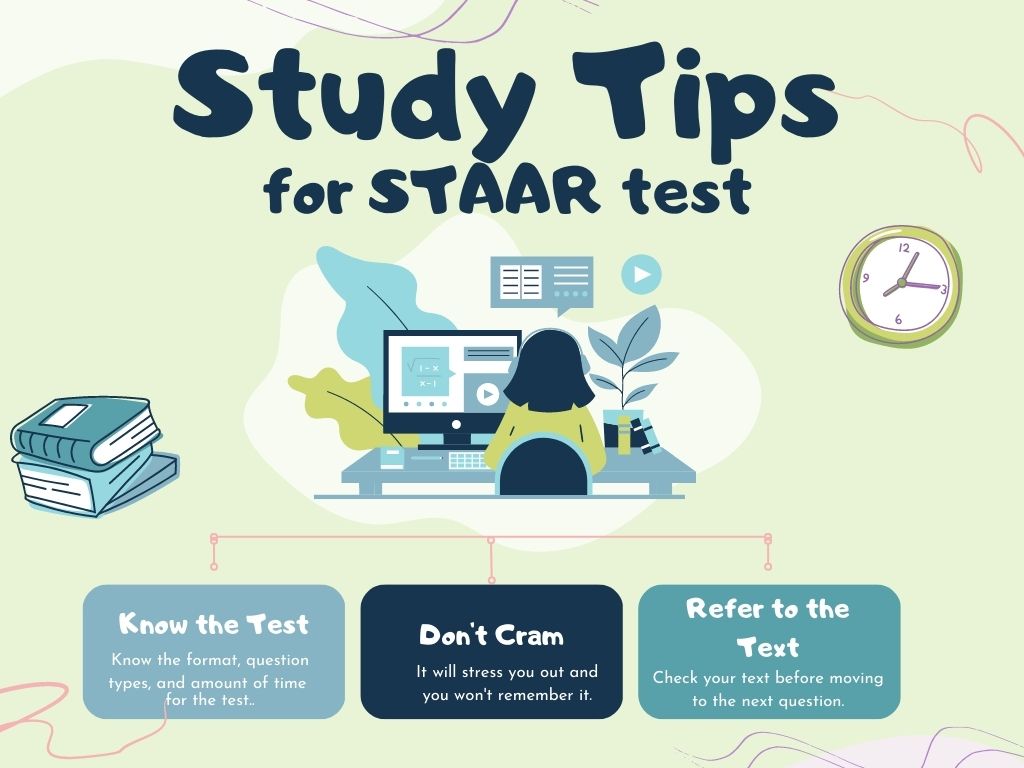Introduction
When you’re a student, you need to get ready for assessments. The best way to do this is with a solid study schedule and good advice on how to approach different types of questions. We’ve put together some tips on both of these topics that will help you feel prepared and confident as exams approach.
Test taking tips overview
- Understand the format of the test and how much time you’ll have for each section.
- Read over your notes and study materials, but don’t cram! If you’re trying to do too much in too little time, it will only lead to stress, which can actually impair your ability to remember information.
- Make sure you understand everything before moving on — this is where most students get tripped up when taking timed tests or multiple choice tests (which most colleges use). It’s easy to assume that if one answer is wrong and another seems right that they’re both wrong. You’ll save yourself time by checking every answer before moving on!
- Refer back to the text. You want to spend the extra few seconds checking if your answer option fits with the text. This is a great way to ensure success. It’s not that you don’t understand the text, but when reading quickly we sometimes miss details or need to clarify them.

Our favorite study strategies
- Practice, practice, practice. Studying for state assessments can be tedious. But there are tools available to help you get through it as quickly and efficiently as possible. One option, try Ye Olde Tutor and our digital tutorials for key concepts you’ll need to know. You can also use flashcards to memorize important facts.
- Take a practice test under timed conditions. Taking a full-length exam is stressful enough without having the added pressure of knowing that you’re being graded while taking the test! One way around this is by taking a practice exam under time constraints so you can get used to how quickly each section needs to be completed without having any extra pressures added onto your shoulders when it comes time for real deal testing day.
Food for thought: Eat right to optimize your brain
Here are some brain-boosting foods to add to your diet:
- Nuts. Nuts are high in healthy fats, which help reduce inflammation, while also providing the protein and antioxidants that your body needs to stay sharp.
- Fish. Fish like salmon and tuna contain omega-3 fatty acids, which can improve memory and focus by increasing blood flow to the brain.
- Tomatoes. Tomatoes contain lycopene, which helps prevent cognitive decline by strengthening blood vessels in the brain and reducing oxidative damage caused by free radicals (cells that steal electrons from other cells).
Here’s what you should avoid eating if you want your mind to perform at its best: junk food (high saturated fat), processed meats (high sodium), red meat (high cholesterol), refined carbohydrates (low fiber) and gluten products like bread made from wheat flour
Sleep! Your study superpower?
You know that sleep is important, but really—how important? Well, let’s take a look at the facts. See if any of these sound familiar:
- Sleep helps you learn. When you’re awake and learning new information, your brain needs to make new connections between the neurons in your brain. That’s how we form memories. However, when you’re asleep those connections are strengthened by something called “synaptic plasticity.” In other words, sleeping allows for better learning!
- Sleep helps with memory consolidation. After experiencing something new during the day (like studying for an exam), sleeping allows for your brain to consolidate what it has learned so far into a cohesive whole that can be remembered later on when needed—which hopefully means being able to recall information from your study sessions!
Your mobile phone and other study distractions
In addition to having your phone turned off, it’s important not to be distracted by other forms of technology as well. It can be tempting to check social media or watch TV while studying, but that will only lead to procrastination.
If we were being honest with ourselves here (and who isn’t?), we’d admit that sometimes it’s hard not checking TikTok or Instagram when waiting in line at the store too long—and even harder when attempting something like memorizing a list of vocabulary words or …but definitely avoid these distractions!
Interested in more in-depth test prep?
If you’re interested in more in-depth test prep, Ye Olde Tutor is a digital learning platform that supports students with Language Arts and Reading. Our content library offers dozens of tutorials designed to support your on your journey to success on your state assessments.
Try Ye Olde Tutor’s 7 day free trial.
